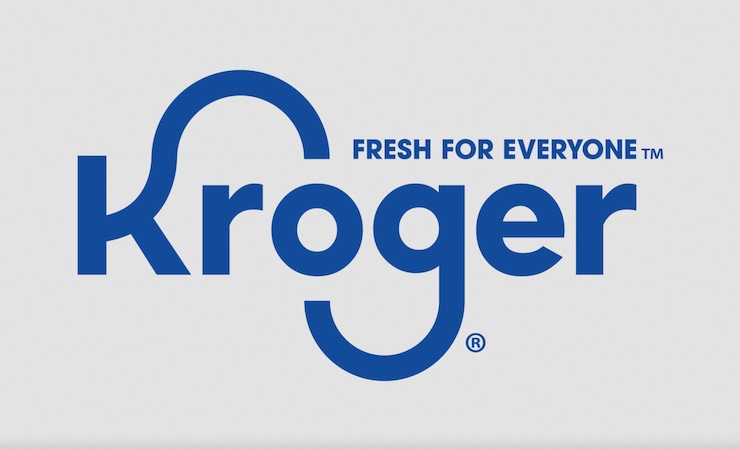
When Amazon launched its Prime services in 2005 with the benefits of free two day shipping, there was a dramatic shift in how consumers shopped. People could get what they needed rapidly from the comfort of their homes. It wasn’t long until next day delivery became available in certain locations leading to even more people turning to shopping online for goods. One area of retail that seemed not to be touched by the boom in online shopping was the grocery sector. To get fresh food and pantry staples, you still needed to go out to the stores to get the best selections. Recognizing just how much people love to shop online, Amazon soon began selling shelf stable groceries. Next, they partnered with Whole Foods to begin offering all grocery items via Amazon Prime delivery.
It became clear that people enjoyed the convenience of ordering groceries online to be delivered to their homes. Meal subscription plans started taking off, as did personal shoppers in grocery stores that would package and deliver shopping lists. When COVID-19 quarantines began in March of 2020, being able to order groceries online and have them delivered became a means of survival for many people. While many retail businesses have struggled in the wake of the pandemic, grocers like Kroger have surpassed their yearly goals. Already the largest grocery retailer by revenue in the United States, Kroger’s online business exceeded $10 billion over the last year. Kroger plans on doubling that number by the end of 2023 by strengthening its home delivery options.
One way that Kroger plans to increase its home delivery options is to embrace one of the fastest growing technologies, drone delivery. Drone delivery is something that many major retailers are in the process of breaking into. Amazon has been teasing customers with the possibility of Prime deliveries via drones since 2014. Leading up to the outbreak of the coronavirus, drone delivery trials with FedEx and Walgreens had begun in select communities. In response to COVID-19, the Federal Aviation Administration (FAA) made it possible for other retail giants like Walmart and CVS, along with small private businesses, to begin drone trials as well.
Krogers plans to begin its drone delivery trial later this May out of its Marketplace store in Centerville, Ohio, not far from their Cincinnati headquarters. “We’re excited to test drone delivery and gain insights that will inform expansion plans,” said Kroger’s Jody Kalmbach, group vice president of product experience. “The pilot reinforces the importance of flexibility and immediacy to customers, powered by modern and efficient last-mile solutions.” Providing the last mile drone delivery service will be Telegrid subsidiary Drone Express. Based out of East Hanover, New Jersey, Drone Express also has offices in San Diego, California, and Cincinnati.
Telegrid has been offering secure communications services for the United States military branches and private companies for the last 40 years. In keeping up with the competitive technology sector, Telegrid diversified with Drone Express under the helm of Beth Flippo, a brilliant embedded engineer. As stated on Drone Express’s website, “Beth Flippo is the inventor of the underlying autonomous in-flight decision-making technology in Drone Express and is passionate about unmanned systems.” The system Beth created led to Drone Express becoming one of the first drone systems to be granted airworthiness by the FAA, a criterion that makes them a perfect fit for Kroger’s drone delivery ambitions.
In 2017, Drone Express partnered up with the Choctaw Nation of Oklahoma, one of the select participants in the FAA’s Drone Integration Pilot Program. Through this program, Drone Express helped pave the way for the FAA and drone manufacturers to meet the safety needs for viable drone delivery procedures. The key to this achievement is Beth’s software that allows the drones to constantly receive situational awareness in real time for local and global obstacle avoidance. The fully autonomous drones can carry a payload of 5lbs, which is noticeably less than the payload capacity of other delivery drones, but Kroger is not worried about that.
While some retailers are dreaming of using drones to deliver meals and shopping lists, Kroger has a slightly more realistic vision for their drones. They envision customers going onto the Kroger app to order last minute small items that they may have forgotten about. As Kroger explained, if a customer realizes that they forgot something like sunscreen or a key ingredient, they can order it and have it delivered to them by a drone in less than 15 minutes. Drone Express’s unique system means that the drones can make deliveries anywhere, not just at a customer’s residence. Because, as Kroger sees it, people needing a quick last minute item, either at home or out and about, is the ideal way to utilize last mile drone deliveries.
After Kroger’s initial trial in Ohio, they plan to expand the drone delivery service on a broader scale in California. This would include Ralph’s stores that Kroger operates as well, bringing last minute drone delivery options available to sprawling communities. Being able to order groceries online has become the new normal over the last year. Even though COVID-19 restrictions are easing up, retailers like Kroger believe that e-commerce will continue to progress, especially with the growing trend of drone deliveries. And as Beth said, “The possibilities for customers are endless – we can enable Kroger customers to send chicken soup to a sick friend or get fast delivery of olive oil if they run out while cooking dinner,” all in 15 minutes or less with a drone.
|